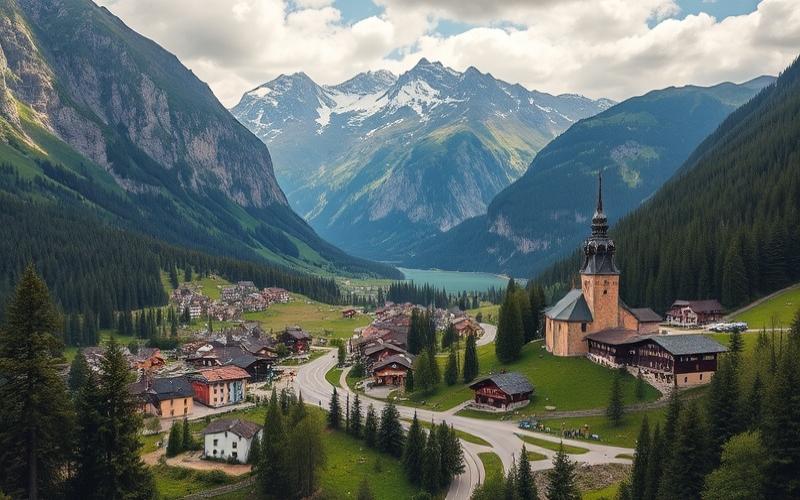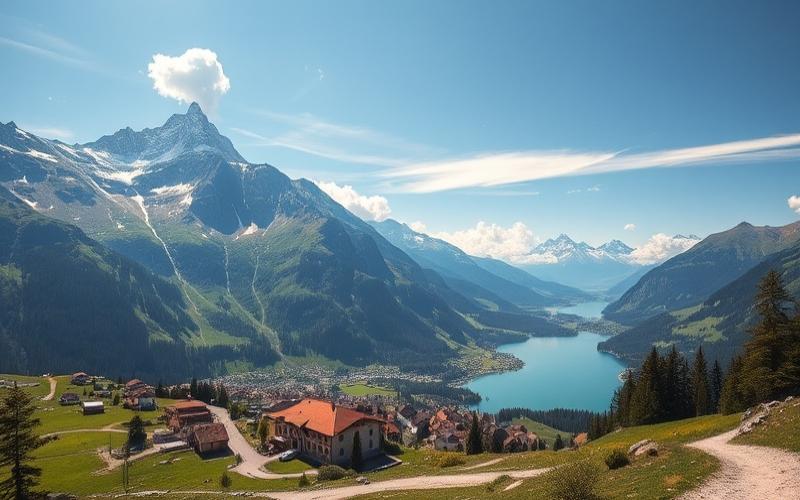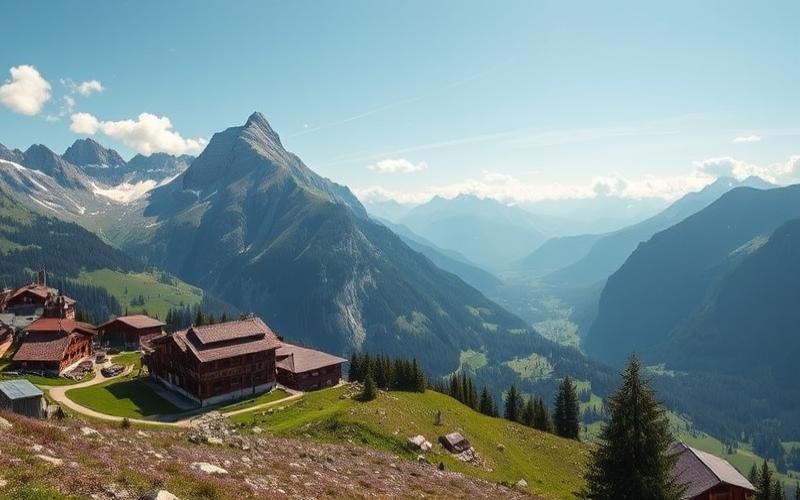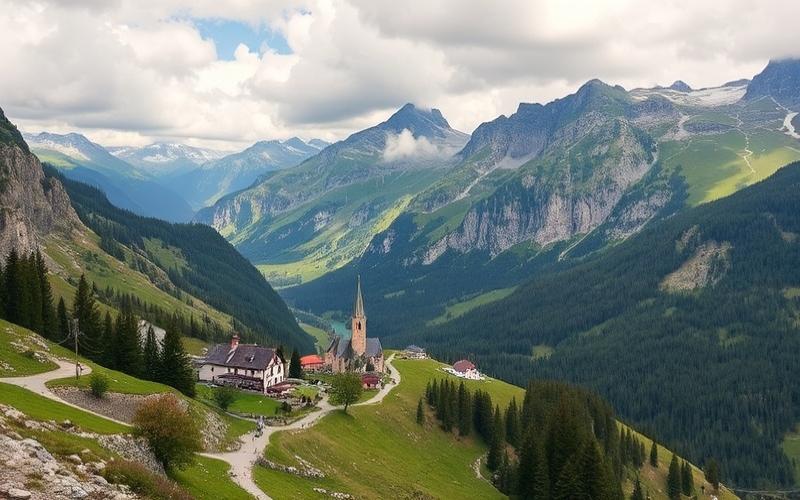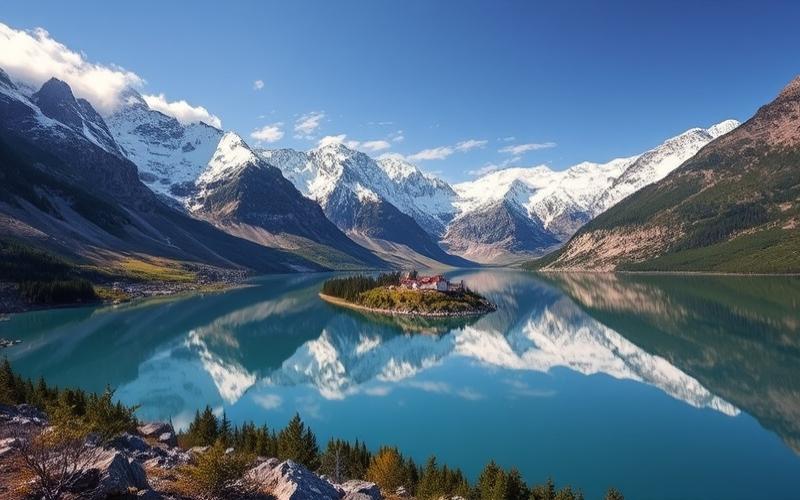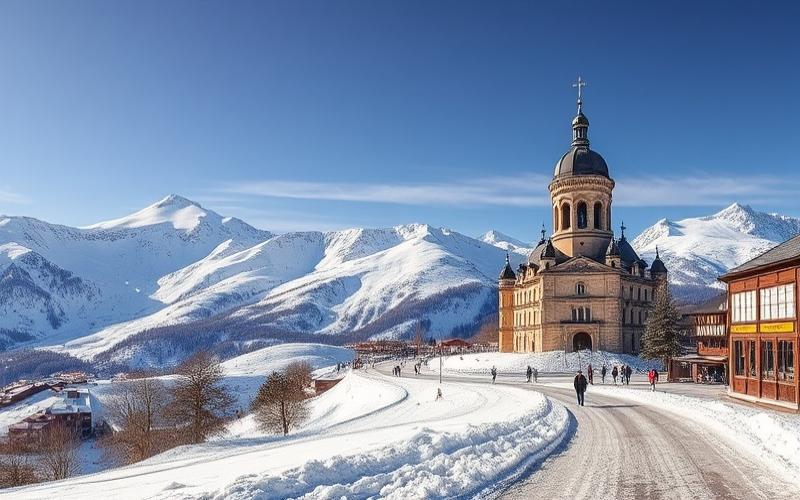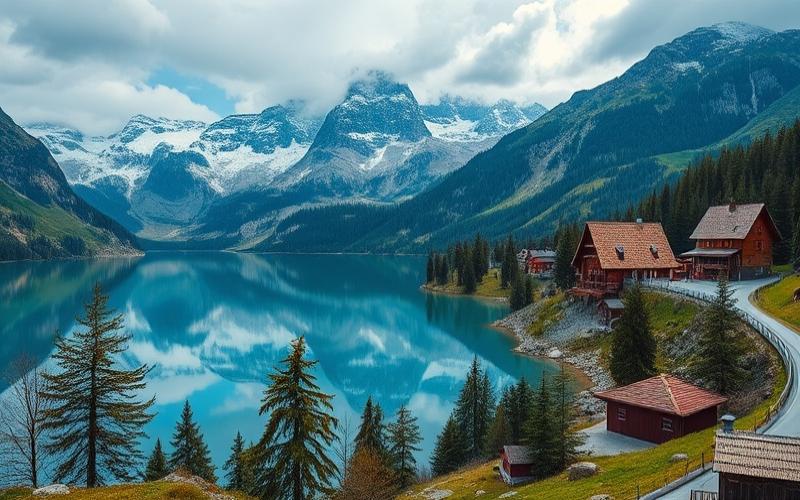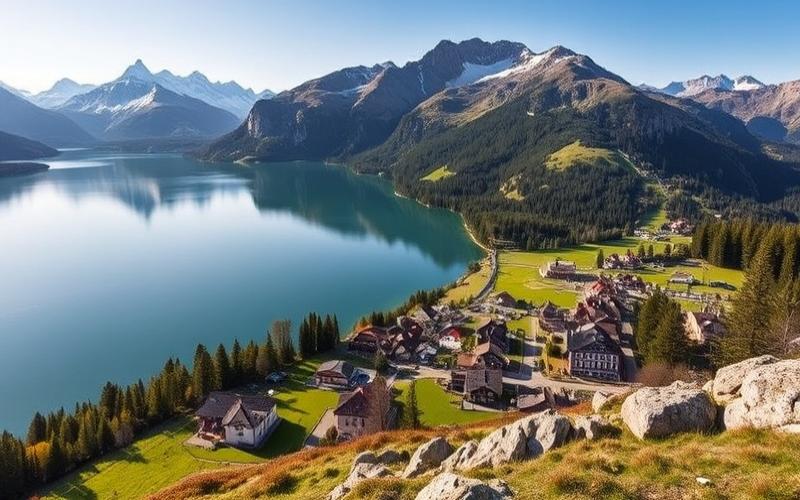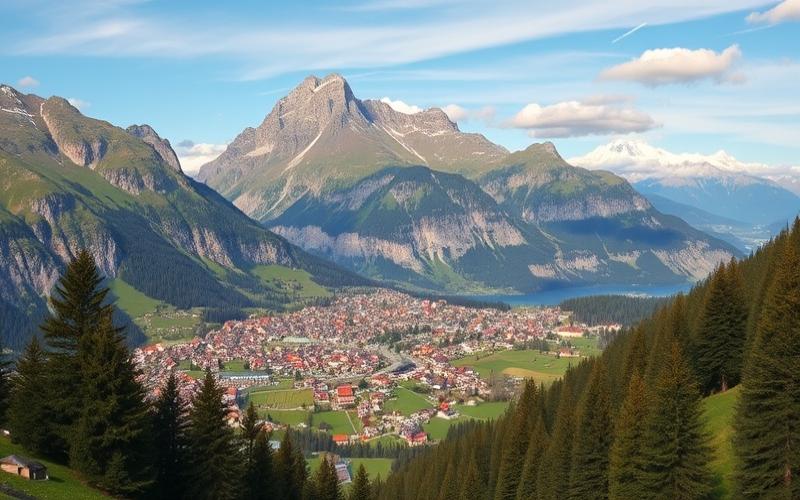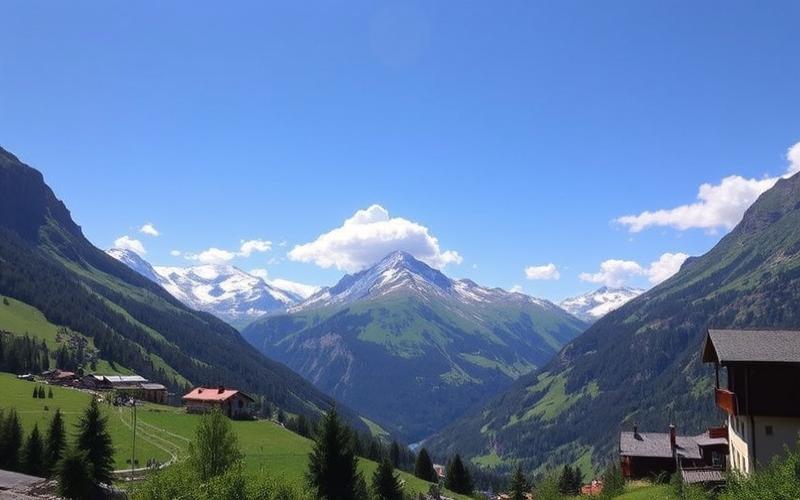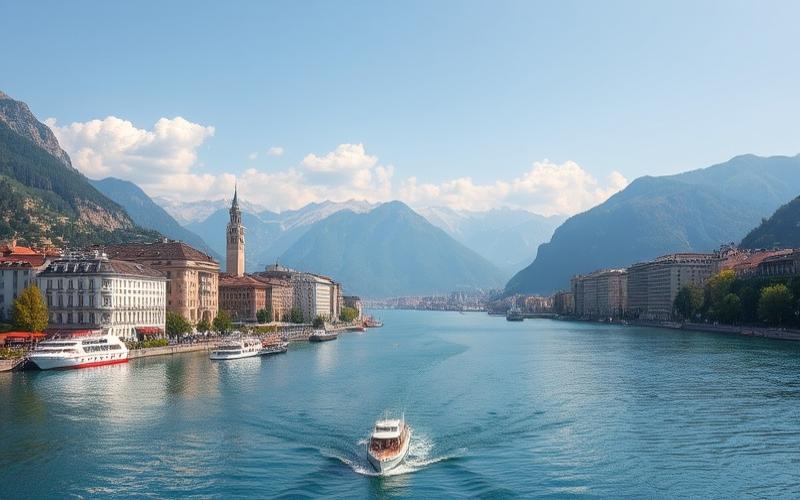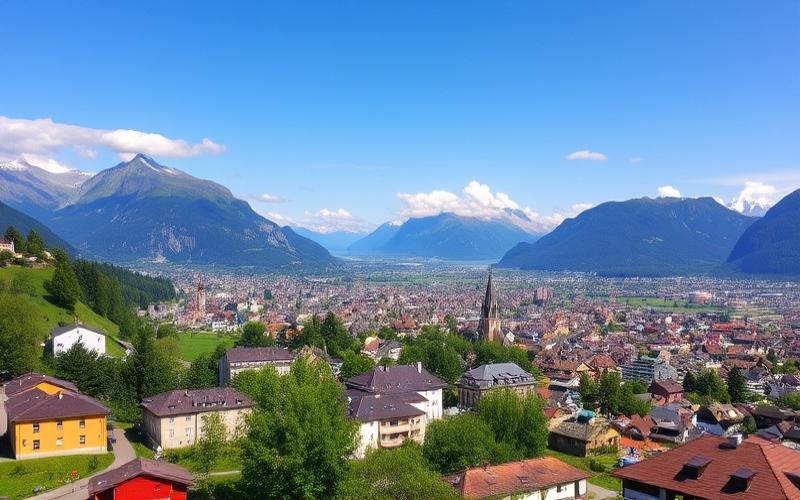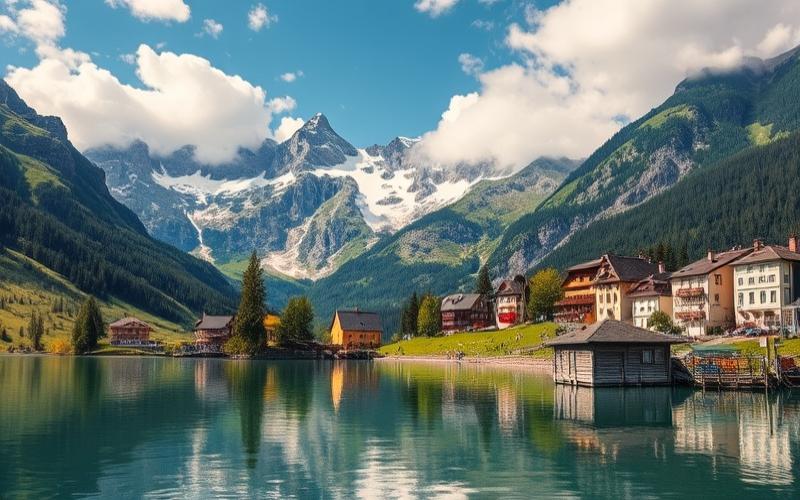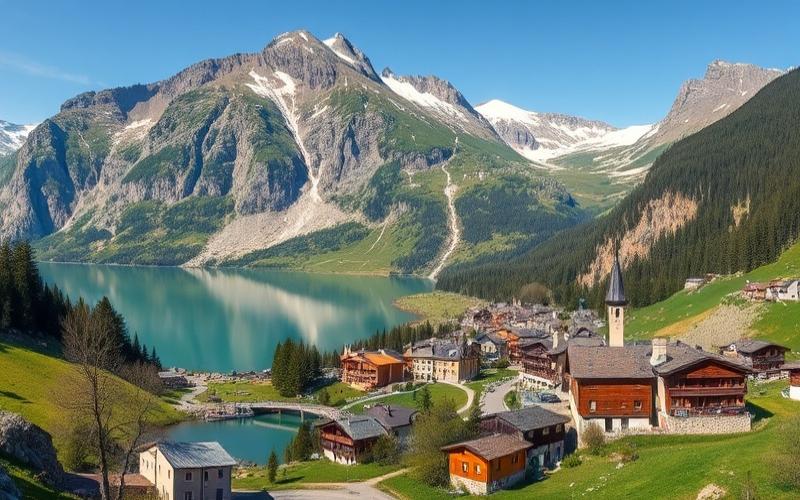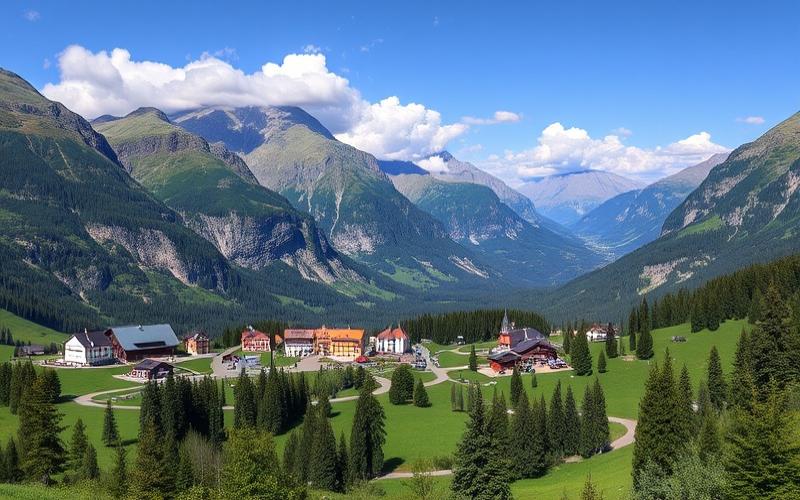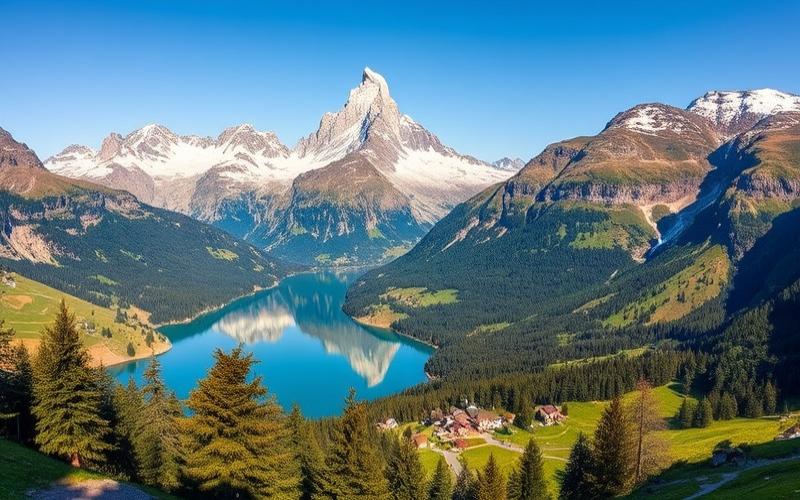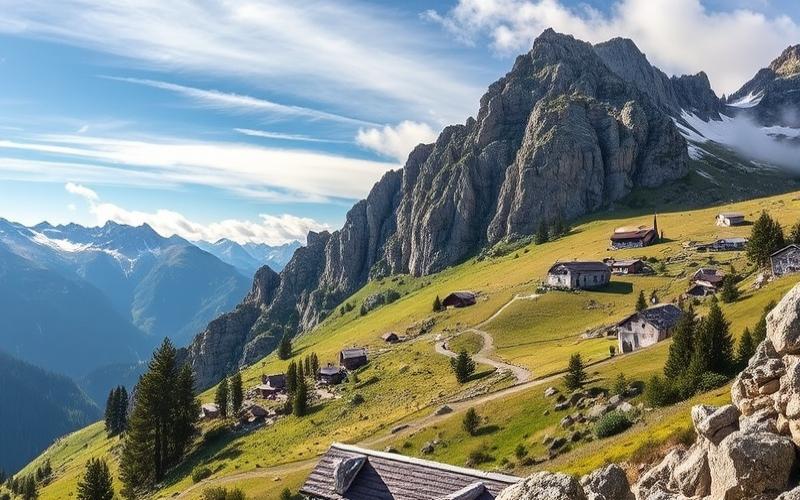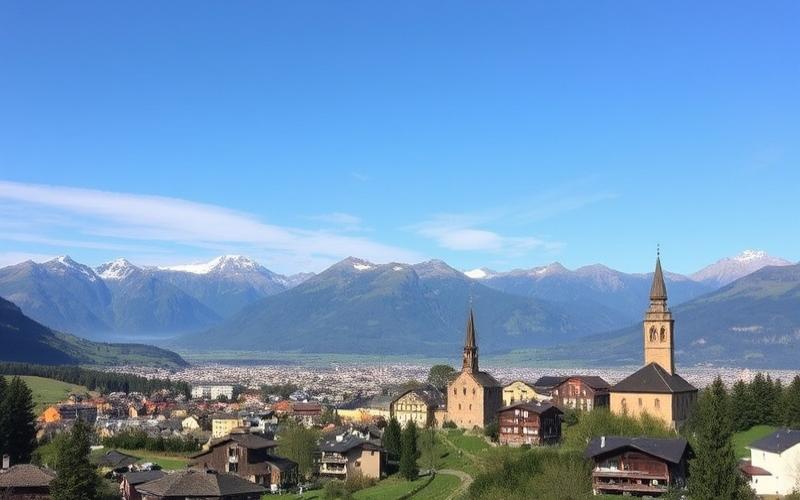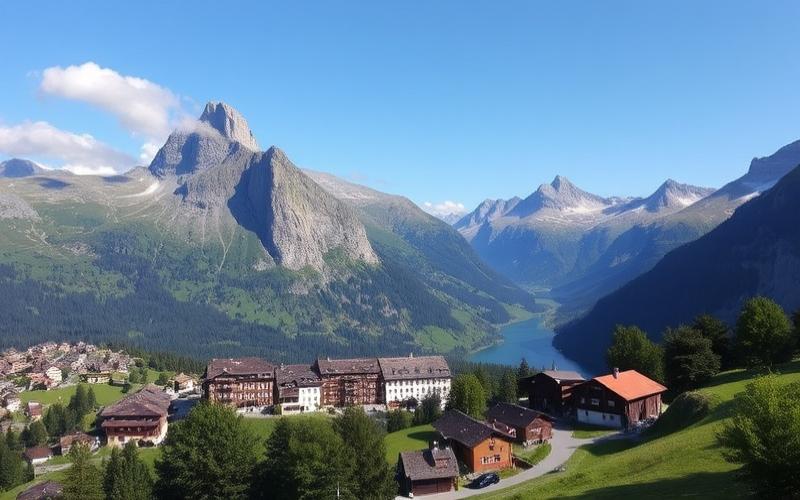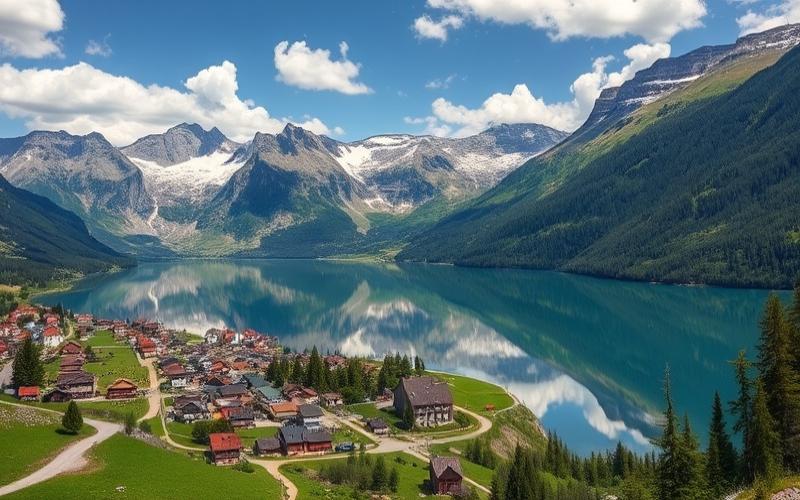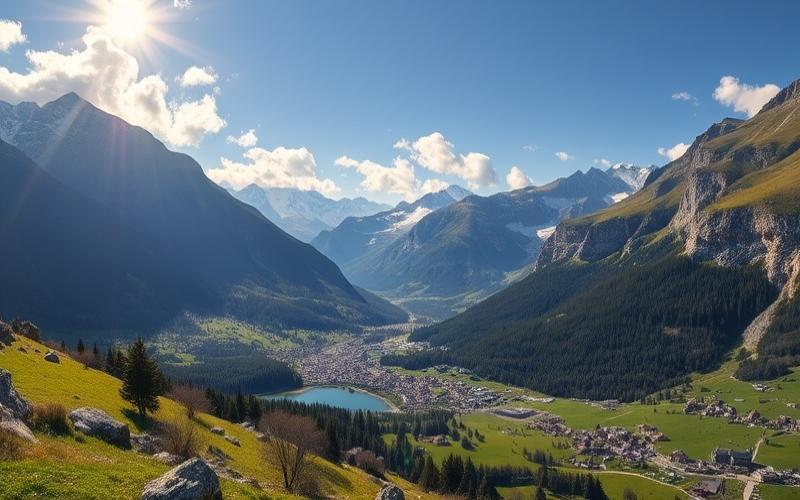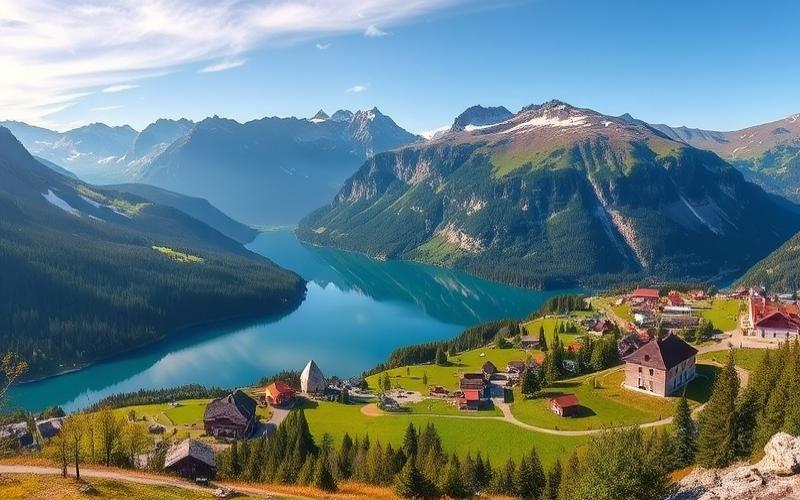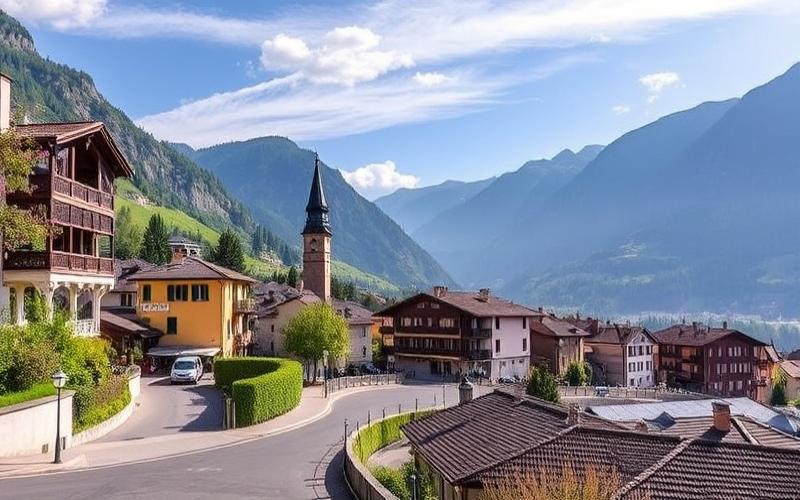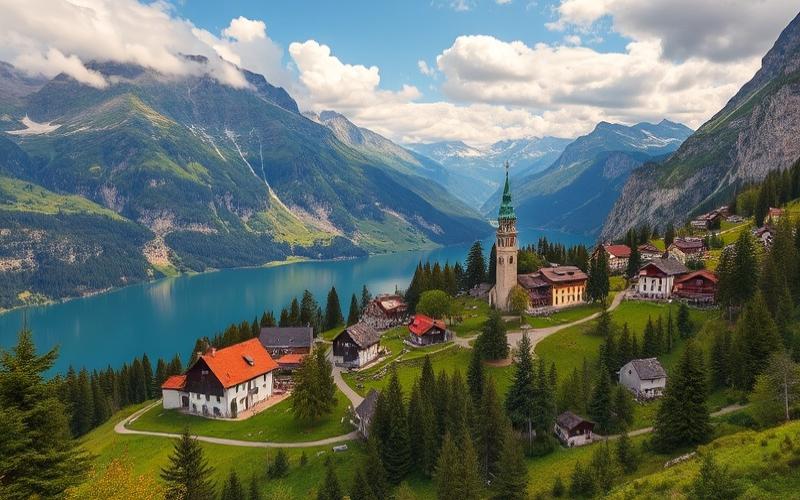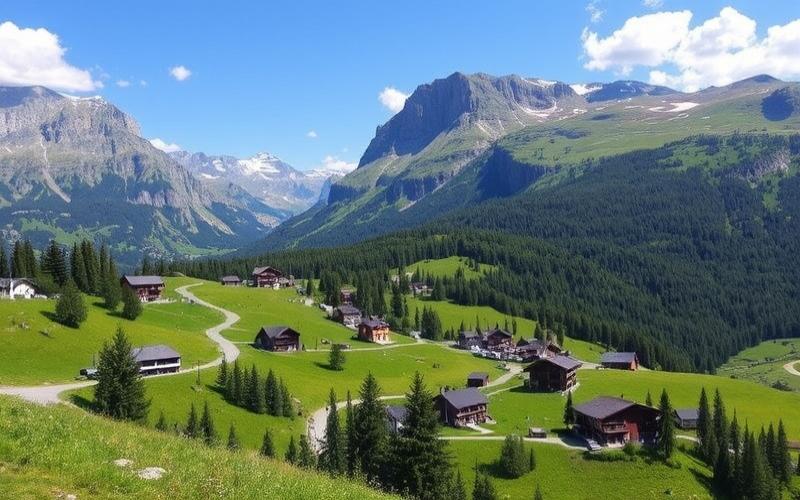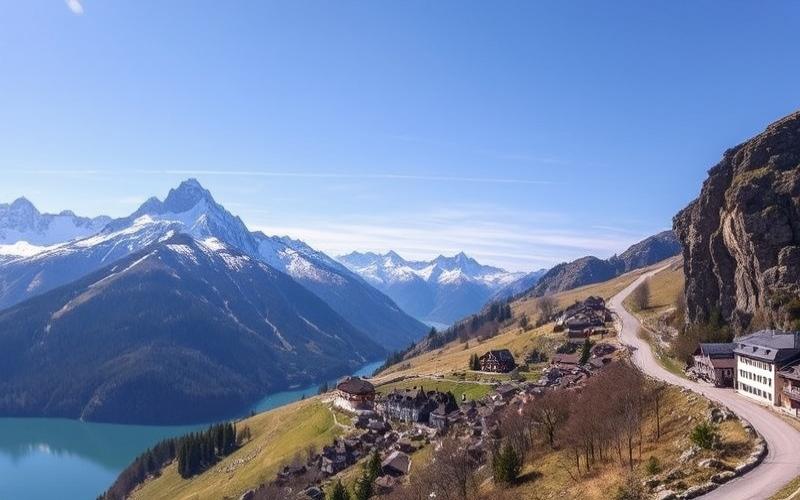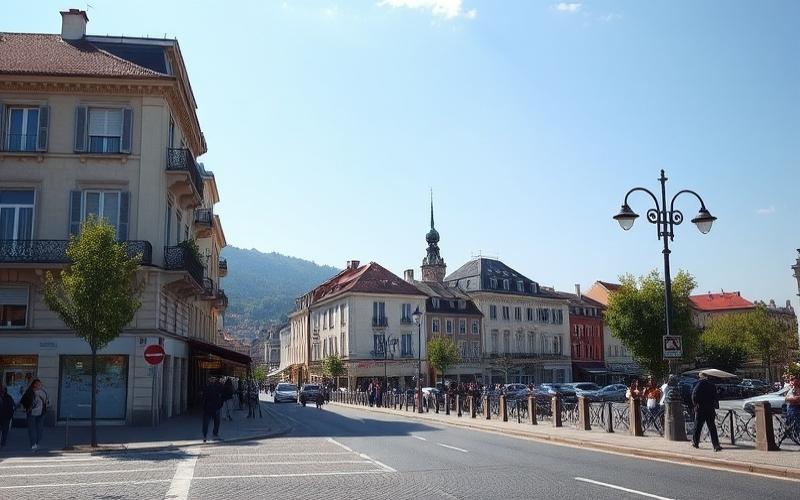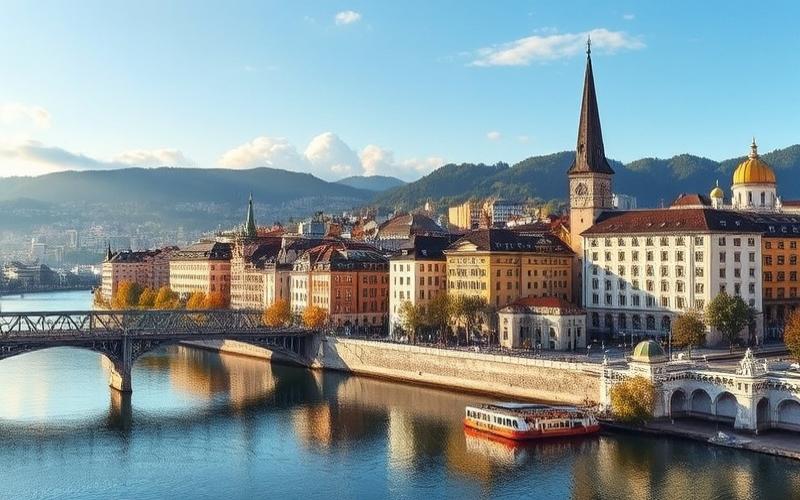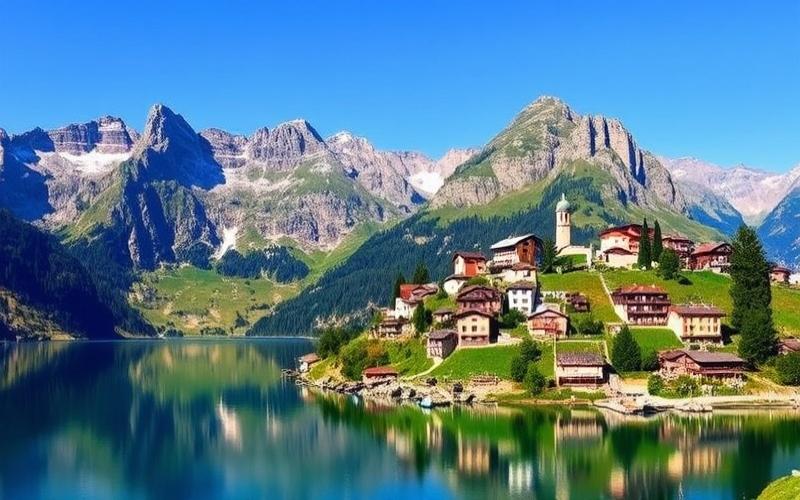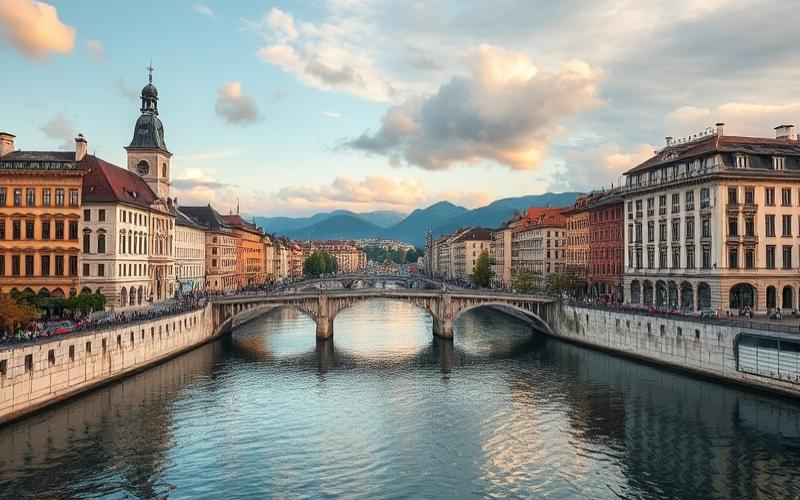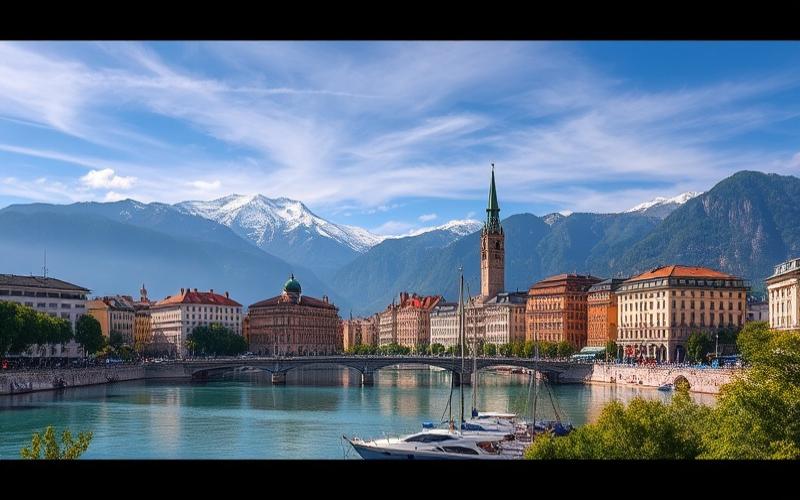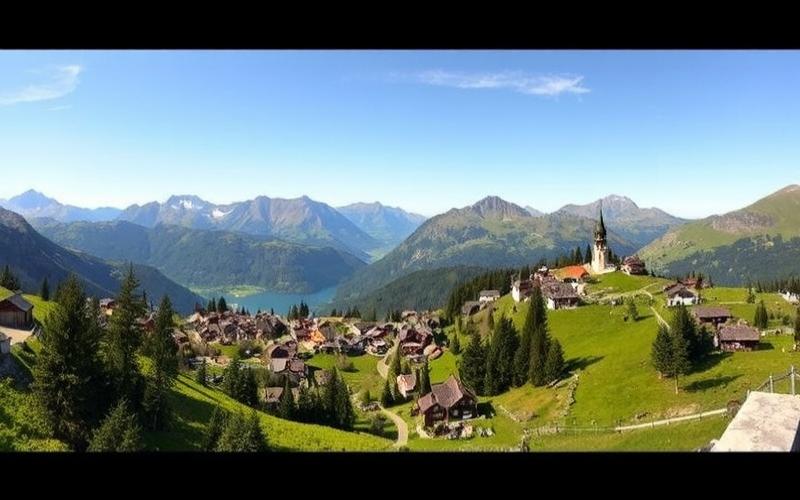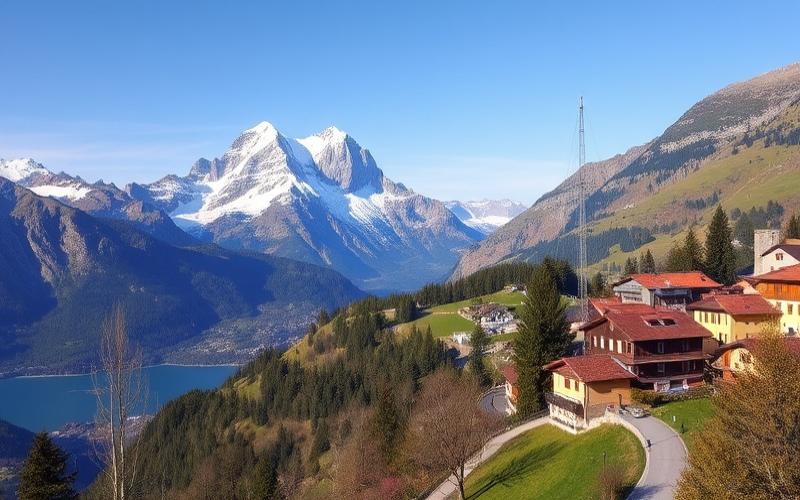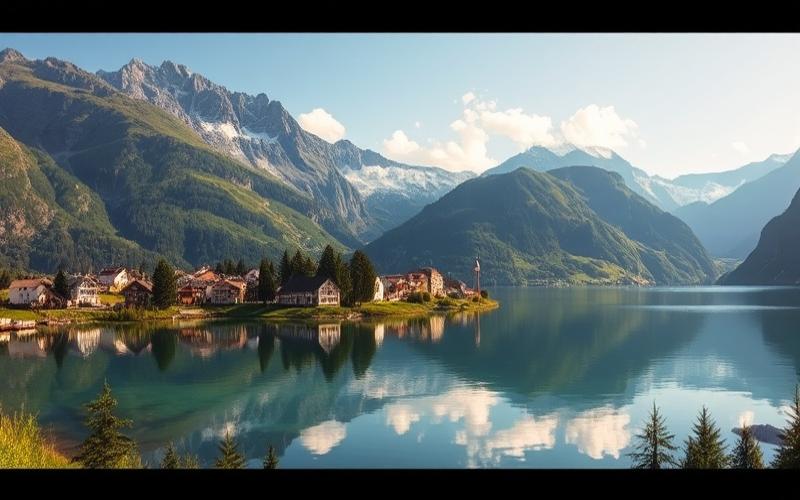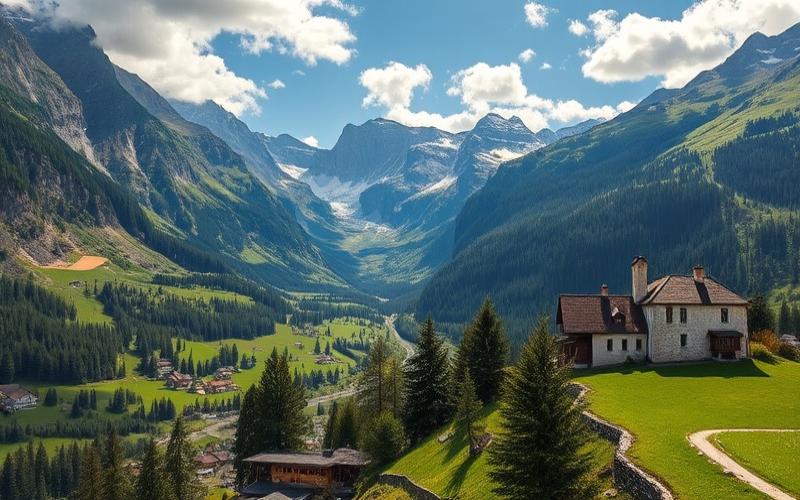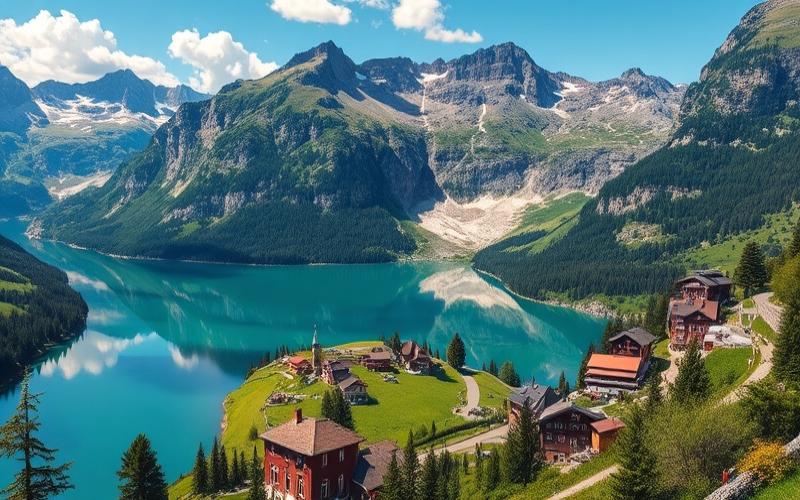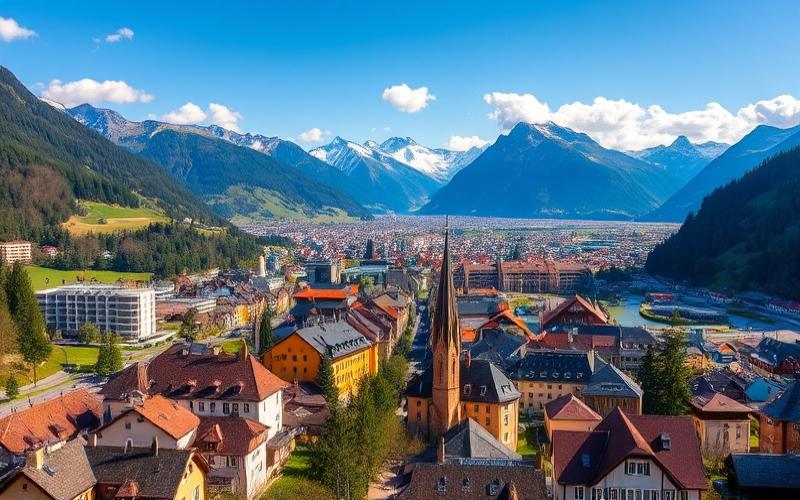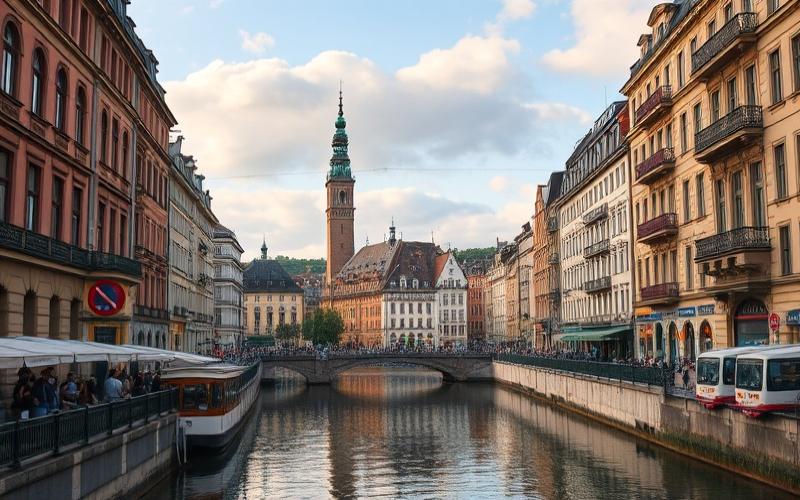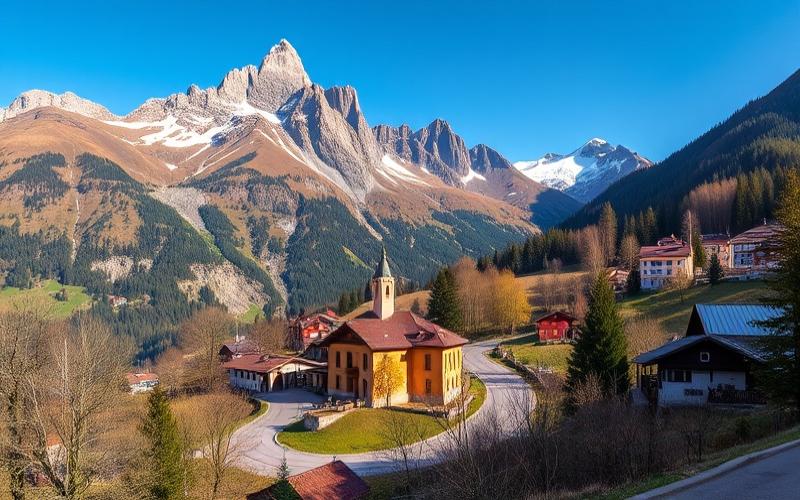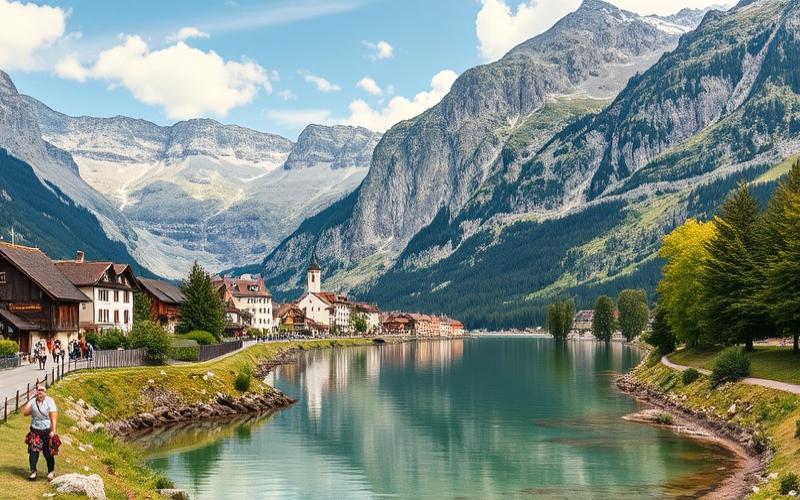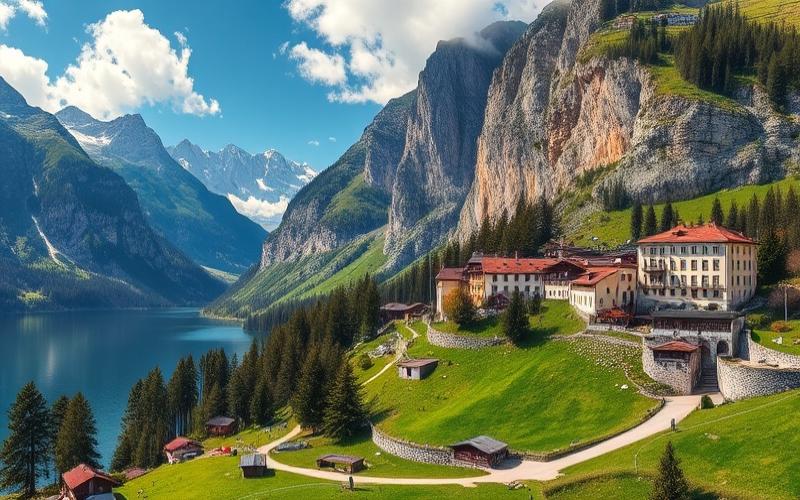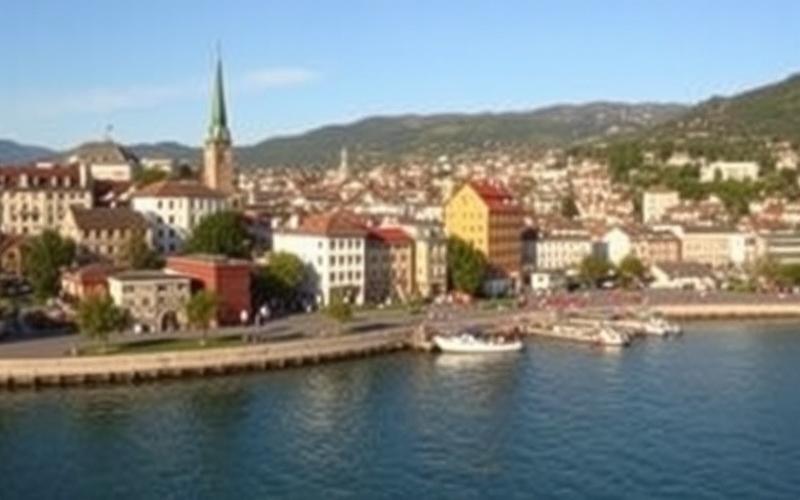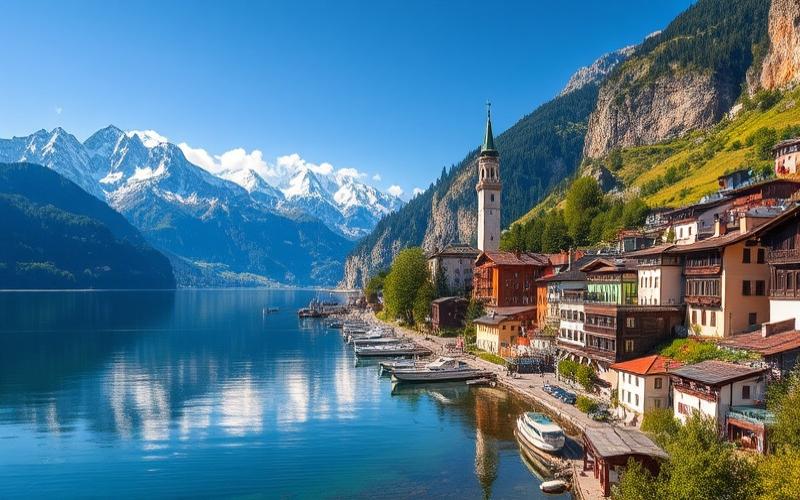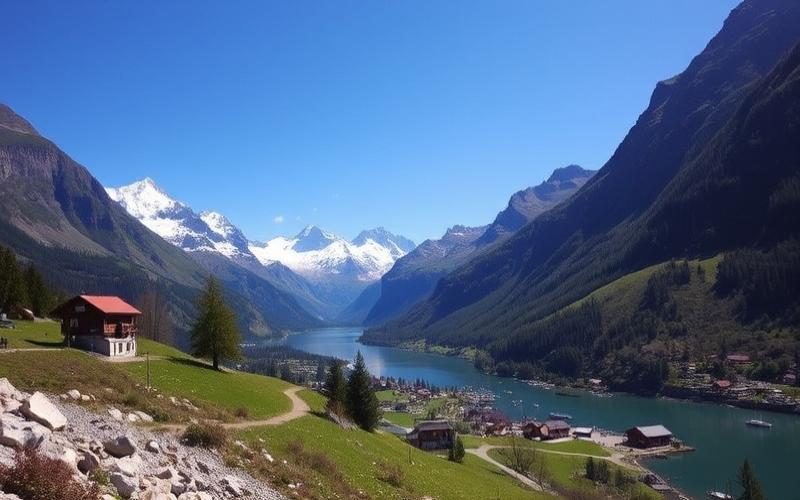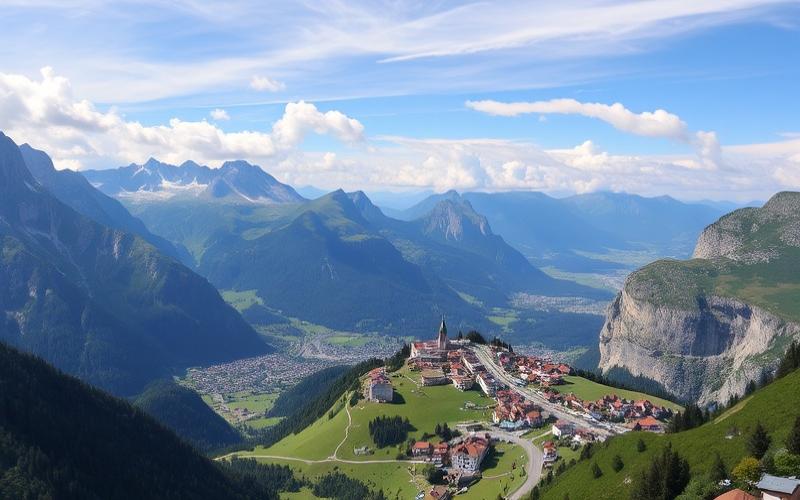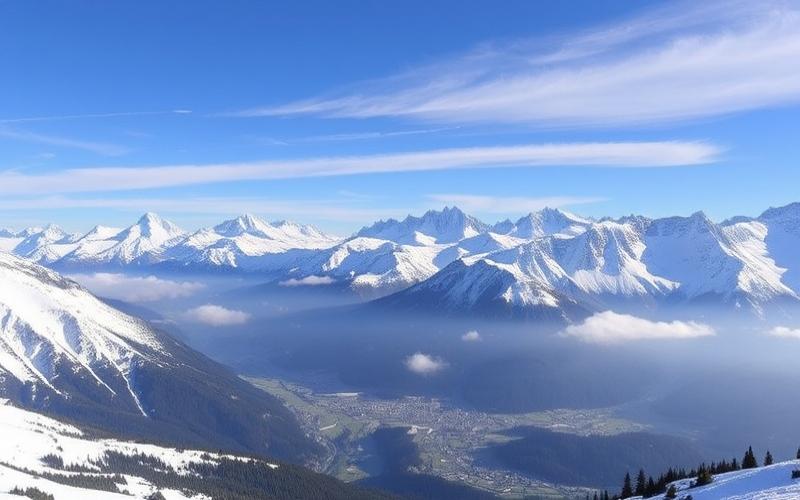
 Published on and written by Cyril Jarnias
Published on and written by Cyril Jarnias
Buying a Hotel in Switzerland: Complete Guide for Investors
Purchasing a hotel in Switzerland can represent an exceptional opportunity for investors, but it requires meticulous preparation and thorough market understanding. As a destination favored by tourists worldwide, Switzerland offers a unique setting for the hotel industry thanks to its captivating alpine landscapes and rich cultural heritage.
However, embarking on such a project requires examining numerous aspects, from local legislation to hotel market trends. This comprehensive guide will help you decipher the essential criteria to consider when buying a hotel, and navigate confidently through the complexities of this dynamic market.
Whether you’re an experienced investor or a curious novice, this checklist will help transform your ambition of owning a hotel into a successful reality in Swiss territory.
Good to Know:
Switzerland ranks among the world’s most sought-after tourist destinations, with a demanding and loyal international clientele.
Overview of the Swiss Hotel Market
The Swiss hotel market demonstrates remarkable dynamism, with record results in recent years. In 2024, Switzerland recorded nearly 43 million overnight stays, a historic peak supported by the recovery of international tourism and sustained strong domestic demand.
| Key Indicators (2024-2025) | Value |
| Number of hotels and spa establishments | ~5000 |
| Total overnight stays in 2024 | 43 million |
| Winter overnight stays 2023-24 (Nov-Apr) | 18.5 million |
| January 2025 overnight stays | 3.2 million (+3.5% vs. previous Jan) |
Geographic Distribution
- Strong concentration in major cities (Zurich, Geneva, Basel), alpine destinations (Valais, Grisons), and tourist regions of Ticino and Lake Geneva.
- Mountain resorts remain highly attractive during the winter season.
Establishment Categories
- Luxury: Strong presence in international urban centers and renowned resorts (Gstaad, St. Moritz).
- Mid-range: The majority of Swiss hotel inventory belongs to this category.
- Economy: Increasingly developed to meet diverse clientele needs.
Occupancy Rates & Seasonality
Occupancy rates vary significantly by region and season; they peak during winter in the Alps and during major urban events.
Winter remains the highlight thanks to winter sports; summer also attracts significant clientele for nature tourism.
Main Sources of International Clientele
List of major source markets:
- Germany
- United States: share increased from 5% to 8% between 2015 and 2024
- United Kingdom
- France
However, Swiss tourists have maintained significant importance since the pandemic.
Current Trends & Future Outlook
List of major trends:
- Projected annual growth around +5.8% until 2032, exceeding global GDP growth.
- Rise of sustainable tourism: eco-friendly hotels sought by a new generation of travelers.
Economic Impact & Recent Policy
Post-Covid government measures facilitated rapid sector recovery. Full return to pre-pandemic levels was achieved by end of 2024 thanks to support for local hotel businesses and gradual easing of international health restrictions.
Challenges Faced by Swiss Hoteliers
Summary list:
- Increased competition:
- Growth of digital platforms (Airbnb)
- Constant arrival of new international hotel concepts
- High operational costs:
- Scarce skilled labor
- High prices related to energy or raw materials
- Strict environmental regulations:
- Need to invest in energy renovation to meet growing legal requirements
Crucial challenges for tomorrow: rapid technological adaptation to customer digital expectations; accelerated ecological transition; ability to retain both local and international clientele despite intense competitive context.
Good to Know:
The Swiss hotel market, well distributed geographically with approximately 4500 hotels, is characterized by concentration in key tourist regions like Zurich, Geneva, and the Alps. In 2022, luxury establishments represented 15% of hotel inventory, mid-range 60%, and economy 25%. Average occupancy rates were around 65%, reaching up to 80% during peak summer season. Switzerland primarily attracts international clients, particularly Asian and European clientele. Recent economic events, such as currency fluctuations, along with post-COVID government support measures have influenced the market. Hotel owners must navigate challenges like increased competition, rising operational costs, and strict environmental regulations, requiring significant adaptability and constant optimization of services offered.
Key Steps to Acquire a Hotel in Switzerland
Thorough market research constitutes the essential first step for acquiring a hotel in Switzerland. This process helps evaluate tourist demand in the target region, identify occupancy trends (overnight stays, customer profiles), and analyze sector evolution in response to recent economic cycles. For example, 2024 marked a historic record with nearly 43 million overnight stays recorded across over 5000 Swiss hotels, signaling strong recovery of both national and international tourism post-pandemic. Understanding these local and national dynamics helps anticipate commercial potential and adapt your project to market expectations.
Property search is conducted through various specialized platforms (Swiss real estate websites dedicated to hospitality), local real estate agencies, or professional networks such as regional hotel associations. Utilizing industry events or local word-of-mouth can also provide access to unpublished opportunities.
Essential criteria when selecting include:
- Location: proximity to major tourist attractions, accessibility via public or road transport.
- Size: number of rooms suitable for target segment (small family hotel vs larger urban establishment).
- Facilities: presence or possibility of adding restaurant, spa, seminar rooms.
- Overall building condition: potential renovation costs or energy/safety compliance upgrades.
Financial aspects involve several key steps:
- Development of financial plan including purchase price, ancillary fees (notary, taxes), and realistic future revenue/operations estimates.
- Search and obtain financing from Swiss banks which typically require substantial personal contribution along with rigorous project analysis.
- Prior verification that establishment holds all necessary licenses to legally operate a hotel in Switzerland (cantonal/municipal authorization).
Administrative and legal procedures include:
| Step | Description |
|---|---|
| Due diligence | Comprehensive legal/fiscal analysis of property and its operations |
| Regulatory verification | Compliance with local legislation (zoning/hygiene/safety) |
| Property transfer | Appearance before Swiss notary for authentic act signature |
It’s highly recommended to engage from the beginning:
- A lawyer specialized in Swiss real estate/hospitality
- A local real estate agent with thorough market knowledge
- Accountants/tax advisors
These partners facilitate each technical/legal step while ensuring the entire process strictly complies with Swiss regulations.
Key Takeaways
Successful acquisition requires meticulous preparation: thorough understanding of regional market; rigorous selection based on objective criteria; solid financial structuring; scrupulous adherence to local administrative procedures through systematic support from recognized experts.
Good to Know:
To acquire a hotel in Switzerland, start by conducting market research to evaluate local tourist demand, essential for wise investment. Explore real estate platforms and professional networks to find interesting offers, paying attention to location, size, facilities, and establishment condition. Ensure you have necessary financing and verify the hotel holds required operating licenses. Administrative procedures include compliance with local regulations and property transfer, crucial steps where engaging a Swiss lawyer or real estate agent can prove indispensable for smooth, legally compliant transactions.
Essential Due Diligence for Buying a Swiss Hotel
Purchasing a hotel in Switzerland requires rigorous due diligence to guarantee investment viability and compliance. This process helps identify potential risks, verify the establishment’s financial and legal health, and assess its long-term profitability.
Key due diligence steps during hotel acquisition:
- Comprehensive financial statement analysis:
- Examine balance sheets, income statements and cash flow statements from recent years.
- Verify accounting accuracy to avoid surprises about true financial situation.
- Evaluate operating expenses compared to standard hotel industry ratios.
- Review of current contracts:
- Inventory all contracts related to the hotel (commercial lease, suppliers, potential franchise).
- Analyze their duration, conditional clauses or restrictive provisions that could affect future buyer.
- Verification of tax obligations:
- Ensure all tax obligations are met (VAT, local/national taxes).
- Assess potential tax risk that could jeopardize project post-acquisition.
- Examination of Swiss hotel market:
- Analyze local and regional competitive environment.
- Study current sector trends to anticipate future evolution (average occupancy rates, seasonality).
- Real estate and hospitality regulatory compliance:
- Verify all local standards for public establishments are met.
- Examine whether property complies with Swiss laws regarding foreign property ownership if applicable.
- Operating permit status:
- Confirm all permits necessary for hotel operations are valid.
| Key Step | Main Objective |
| Financial statements | Economic health & price relevance |
| Current contracts | Legal security & operational continuity |
| Tax obligations | Compliance & fiscal risk management |
| Hotel market trends | Commercial sustainability |
| Local regulations | Legal framework compliance |
| Operating permits | Activity legality |
Collaboration with local experts:
To secure each process step:
- Work with lawyer specialized in Swiss real estate/hospitality law to verify all legal aspects.
- Consult accountant or fiduciary thoroughly familiar with local taxation to validate financial and tax data provided by seller.
Comprehensive due diligence not only protects against hidden defects but also optimizes your success chances in this demanding sector.
Good to Know:
Due diligence is crucial when buying a hotel in Switzerland and includes several key steps to ensure successful transaction. Start with thorough examination of hotel financial statements, checking profit and loss reports, cash flows, and any potential liabilities. Study current contracts, particularly those with suppliers and staff, to identify problematic clauses. Tax obligation assessment is also essential to avoid post-purchase surprises. Analyze Swiss hotel market trends to understand its dynamism and identify potential opportunities or risks. Familiarize yourself with local regulations concerning Swiss real estate and hospitality, and ensure all operating permits are current. Collaborating with Swiss legal and financial experts is advised to guarantee local legislation compliance, maximize your investment, and avoid potential disputes.
Swiss Tourism Statistics and Trends
In 2024/25, Swiss tourism continued its growth, with key indicators progressing and record hotel occupancy. Recent data shows continuous increase in overnight stays and marked interest from certain international markets.
Visitor Statistics and Tourist Origins
- Switzerland recorded 18.4 million overnight stays during winter 2024/25, setting a new record.
- For upcoming summer, forecasts indicate 24.9 million overnight stays (+2% compared to 2024).
- Main countries of origin remain mostly European nations (with robust demand), followed by United States showing double-digit growth.
- New markets gaining ground: Brazil and Turkey among primary sources of increase this season.
Seasonal Variations
| Season | Recorded Overnight Stays | Characteristics |
|---|---|---|
| Winter 2024/25 | 18.4 million | Record attendance |
| Summer (forecast) | 24.9 million | +2% vs previous summer |
- Winter is particularly strong thanks to alpine resorts and holiday periods (Christmas/New Year).
- Summer attracts both European and global clientele for its natural landscapes.
Emerging Trends in Swiss Hospitality
- Sustainable tourism establishing as major criterion in accommodation choices.
- Luxury tourism segment shows strong resilience and continues attracting high-end international clientele.
- Business travel gradually returning to pre-pandemic levels but now incorporating more ecological requirements.
Regional Comparison
| Region | Attendance Level | Strengths |
|---|---|---|
| Swiss Alps | Very high | Winter sports, nature stays |
| Major urban centers (Zurich, Geneva) | High | Cultural & business tourism |
| Ticino & Lake Geneva region | Moderate to high | Lake Geneva/Ticino attractive year-round |
The Alps remain essential in winter while cities like Zurich or Geneva benefit from both urban and professional tourism.
Impact of Major Events
International events such as cultural festivals or sports competitions significantly stimulate hotel demand during their occurrence. Their regular scheduling contributes to tourist dynamism even outside peak season. Furthermore, these events often attract international clientele who then discover different Swiss regions during single stays.
Post-Pandemic Trends in Tourist Habits
After the pandemic:
- Domestic demand remains stable at high level; however it no longer shows rapid progression observed immediately post-Covid.
- Recovery mainly driven by gradual but marked return of American visitors along with certain extra-European emerging markets.
Also noted:
- Average stay lengthening
- Increased preference for establishments displaying clear environmental commitments
Forecasts & Opportunities for Hotel Investors
Projections indicate moderate but solid continuation of this growth at least until 2026. Opportunities identified particularly:
- In high-end/luxury segment
- For sustainability/environment-oriented offerings
- In certain still under-exploited regions outside classic major resorts
The Swiss hotel market therefore remains promising despite some cyclical uncertainties related to international context or customs policies. Investors attentive to new trends (sustainability/luxury/new segments) thus have solid levers to succeed in their acquisitions or creations within this dynamic sector.
Good to Know:
In Switzerland, tourism attracts approximately 11 million visitors annually, primarily originating from Germany, United States, China, and India. Peak tourist season extends from June to August for summer tourism and December to February for winter sports, with marked attendance in the Alps and ski resorts like Zermatt and St. Moritz. Emerging trends favor sustainable tourism with increased demand for ecotours and eco-friendly accommodations, along with business travel and luxury tourism focused on customized experiences. Destinations such as Zurich, Bern, and Geneva see strong hotel occupancy year-round thanks to international conferences and major cultural events. The pandemic altered travel habits, increasing average stay duration and interest in nature travel. Forecasts indicate 3-4% annual tourism growth until 2025, offering opportunities for investors in emerging regions like Ticino. Recurring events, such as Montreux Jazz Festival or Geneva Motor Show, continue stimulating tourist appeal, thereby supporting the hotel sector.
Disclaimer: The information provided on this website is for informational purposes only and does not constitute financial, legal, or professional advice. We encourage you to consult qualified experts before making any investment, real estate, or expatriation decisions. Although we strive to maintain up-to-date and accurate information, we do not guarantee the completeness, accuracy, or timeliness of the proposed content. As investment and expatriation involve risks, we disclaim any liability for potential losses or damages arising from the use of this site. Your use of this site confirms your acceptance of these terms and your understanding of the associated risks.

